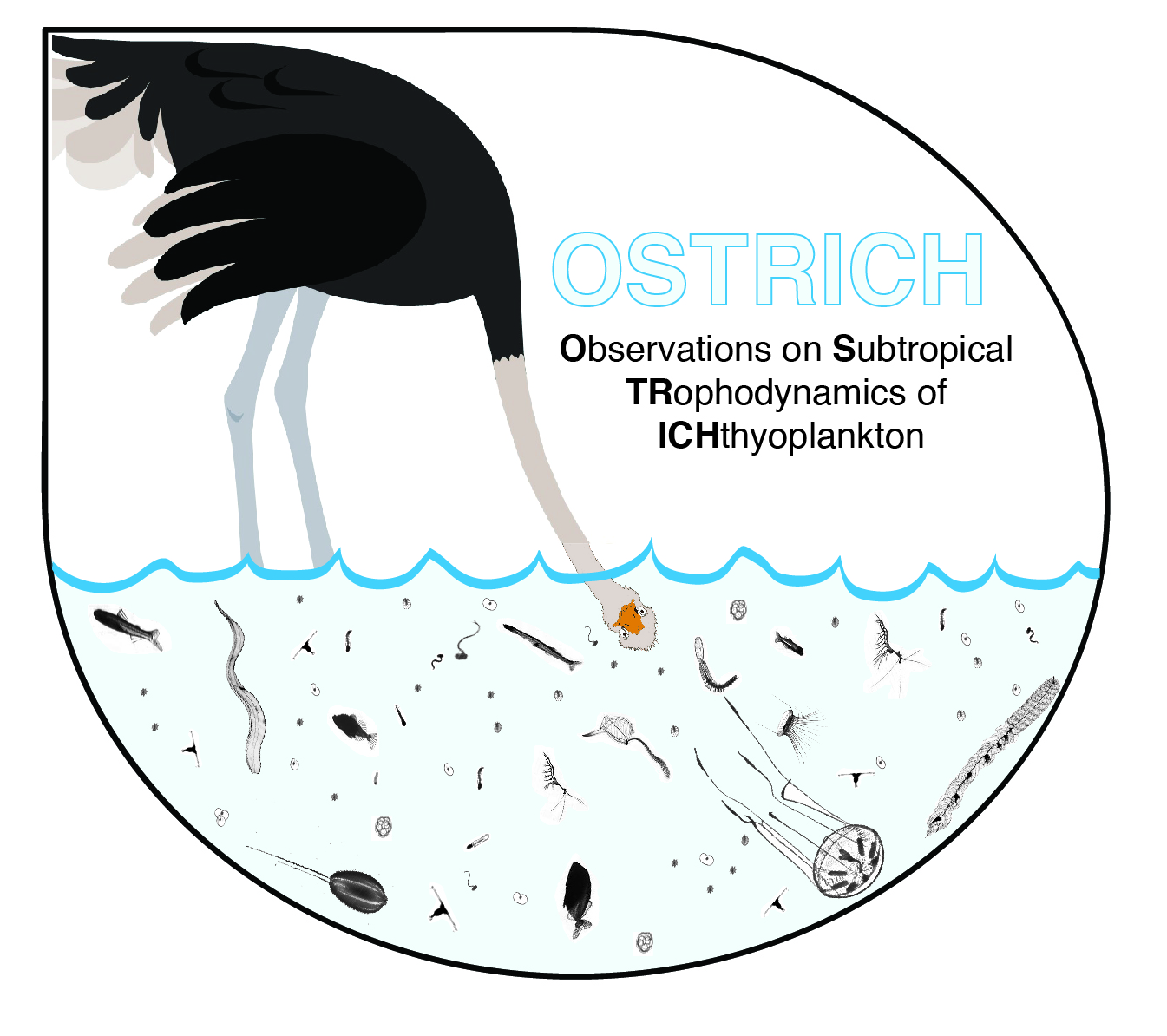 ©2020 Biological and Chemical Oceanography Data Management Office.
©2020 Biological and Chemical Oceanography Data Management Office.Funded by the U.S. National Science Foundation
Description from NSF award abstract:
The spatial pattern of organisms within pelagic marine environments is of significant ecological importance, and this is particularly true for larval fishes. Patchy prey and predator environments should lead to variation in predator-prey interactions, and thus to variations in larval fish growth and survival. These have proven very difficult to resolve in nature, due in large part to the broad range of spatial scales involved and technological challenges with adequately sampling the various processes simultaneously. This study will use new technology (In Situ Ichthyoplankton Imaging System - ISIIS) to simultaneously measure the fine-scale distribution of larval fishes in relation to their prey, their planktonic predators, and the physical environment of the Straits of Florida. This will be combined with targeted fine-scale net sampling and analyses of individual recent daily larval growth. By sampling a series of water masses at very high resolution, this study will address specific hypotheses concerning: i) the drivers of aggregations and patchiness, and ii) the biological consequences of predator-prey interactions at fine scales.
The primary intellectual merit of the study is the unprecedented examination of plankton processes at scales of relevance to biological interactions among larval fishes, their prey, and their predators. This field study will further our understanding of the predator-prey interactions contributing to spatially explicit larval growth and mortality patterns. The focus on subtropical planktonic food webs will enhance scientific knowledge of these understudied pelagic ecosystems and provide valuable data for comparative analyses with pelagic food web dynamics at higher latitudes. A deeper understanding of pelagic planktonic ecosystems over a range of spatial and temporal scales is increasingly important as the oceans undergo major environmental changes. Substantial increases in the relative dominance of gelatinous organisms, for example, have the potential to cause major shifts in pelagic food webs. A better understanding of the fine-scale interactions of such food webs will help society anticipate and respond to the consequences of such changes.
Note (07 Oct 2014): Funding for this project transferred from award OCE-1333800 to OCE-1419987, coincident with the Principal Investigator's affiliation change from University of Miami to Oregon State University.

Principal Investigator: Robert K. Cowen
Oregon State University (OSU-HMSC)
Co-Principal Investigator: Su Sponaugle
Oregon State University (OSU-HMSC)
Contact: Robert K. Cowen
Oregon State University (OSU-HMSC)
Data Management Plan received by BCO-DMO on 22 Sept 2014. (80.83 KB)
10/09/2014